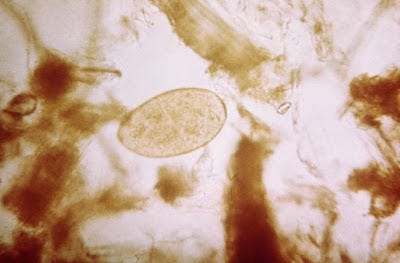Bolivia begins Fasciola hepatica deworming campaign in Achacachi
In Bolivia, the Ministry of Health and Sports together with its counterpart of Environment and Water and in coordination with the Departmental Service (SEDES) launched a deworming campaign to eradicate the trematode (fluke), Fasciola hepatica, in the municipality of Achacachi on the Altiplano plateau in the South American Andes in the La Paz Department.
"Today we are launching the delivery of these antiparasitic agents to fight against fascioliasis. We are going to begin with the delivery of 496,800 tablets of antiparasitic medicine so that we can work throughout the municipalities, the different health networks so that these medications reach the population and we can finally say that Bolivia is free of fascioliasis,” said the Minister of Health and Sports, Maria René Castro.
The national government delivered the batch of antiparasitics to SEDES La Paz to carry out mass deworming against the hepatic fluke in 15 municipalities in the north of La Paz, where this disease occurs.
“Today here, in Achacachi, we want it to be the moment and for it to be that historic step. We hope that it is here where we say, it was in Achacachi, where we took the big step, it was where we began to take the step towards the elimination of fascioliasis, we are insurance and it will depend on the people, it will depend on the municipality, the mayor, the councilors and the role of all of us,” said the minister.
According to the Centers for Disease Control and Prevention, Fascioliasis is a parasitic infection typically caused by Fasciola hepatica, which is also known as “the common liver fluke” or “the sheep liver fluke.” A related parasite, Fasciola gigantica, also can infect people. Fascioliasis is found in all continents except Antarctica, in over 70 countries, especially where there are sheep or cattle. People usually become infected by eating raw watercress or other water plants contaminated with immature parasite larvae. The young worms move through the intestinal wall, the abdominal cavity, and the liver tissue, into the bile ducts, where they develop into mature adult flukes that produce eggs. The pathology typically is most pronounced in the bile ducts and liver. Fasciola infection is both treatable and preventable.






